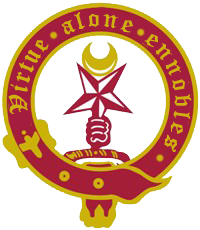We all heard and possibly employed many consultants when addressing so-called expert matters; needing attention from those “specialising” in a certain field. Consultants are a common sight in the modern corporate sphere and working in many different spheres from business to legal to our industry, maritime. However the question that remains is what is involved in the field of consultancy and why it matters altogether.
Firstly, consultants in theory, are meant to provide expert advise within a specific field or sub-field. Such experts are usually hired (during reorganisation and termination of some employees occasionally) by those that either lack the knowledge/experience about that certain field or are unsure about their decision and thus want a second opinion. Also, consultants are usually hired in times of starting a new project or business or resurrect a flailing or failed one; hired to save money on hiring full-time employees thus making a consultant also responsible for staff briefing/training on his field of expertise. Finally, the client will retain a consultant’s service until his goals and obligations are met.
Consultants, generally speaking have a function of improving and fixing workings and functions of a company along with teaching full-time employees to use new tools. (Software, technology, approaches etc) Along with this, especially in the modern world of social media, ever-evolving technology and new ways of generating revenue, consultants are a common feature of companies working in relatively old industries which need new approaches to fit more modern challenges and clients; creating a notion that consultants have a relatively more modern outlook on the industry; relatively appropriate factor associating with maritime.
So what is maritime consultancy? The process itself involves the imparting of profitable proposals to those engaged primarily in maritime ventures; enhancing and promote their line of business. However, some believe that maritime consultancy is a rare profession as the field itself provides little detail about its specific aims; especially concerning individual companies. This means that for a consultancy operation to be more successful the client firstly, must provide every detail about his operations and focused, linear goals.
Another feature maritime consultants have/should have is the up-to-date knowledge about the economic side of the shipping/maritime industry alongside other details which concern the industry in a direct or indirect manner. This leads to the fact that marine consultants are aware of most details which make the difference between failure and success of a maritime operation. Some factors within the maritime landscape become trends, positive and/or negative depending on the initiative itself; requiring a consultant to be aware of them as well; helping businesses expand their influence.
So far, it can be derived that consultants are usually the force of innovation and expansion of a certain business; modernising its outlook on the industry it concerns. Associating maritime consultancy with fail-safe in re-organisation and renovation of the way a client’s company works; making this profession required if new attitudes will be adopted.
In our operations in UAE, we have worked with major organisations, shipyards, financial institutions, investors and key international marine operators. All the above organisations, though work in the same sphere of maritime but have different demands and different targets which requires different experts; provided by us.
For example, our assignment to RAK (Ras Al Khaimah, UAE) Free Zone for Evaluation and Project Build Management to build a new Dry Dock and New Build Facility. A consultant for this assignment is an expert in finances, local affairs; legal, political and economic to solve future problems and avoid some altogether. Why would a client hire a consultant/consultation firm instead of doing the work themselves? Primarily, a consultant is independent and thus has no liability except to his OWN superiors for his actions and possible errors. Consultants also have, again a new outlook on the industry which, out of own experience can offer solutions that were never considered before.
However, there, like with any aspect there are drawbacks as consultants, though studied their field in greater detail and became experts in it possess knowledge that is mostly theoretical. Theory significantly varies from practical knowledge but this is related to the consultant’s experience in his application of expertise.
A consultant, overall is an expert at a certain field or aspect of any industry, including maritime whose main purpose is to offer expert, though strictly theoretical knowledge. Consultants also have the ability to educate staff about new ways to approach industry-related issues while being hired during re-organisation or resurrection of a project. Consultation itself is a field that serves as avant-garde; discovering new grounds and adopting a new approach; along with re-organising company structure to fit and use this new discovery.

